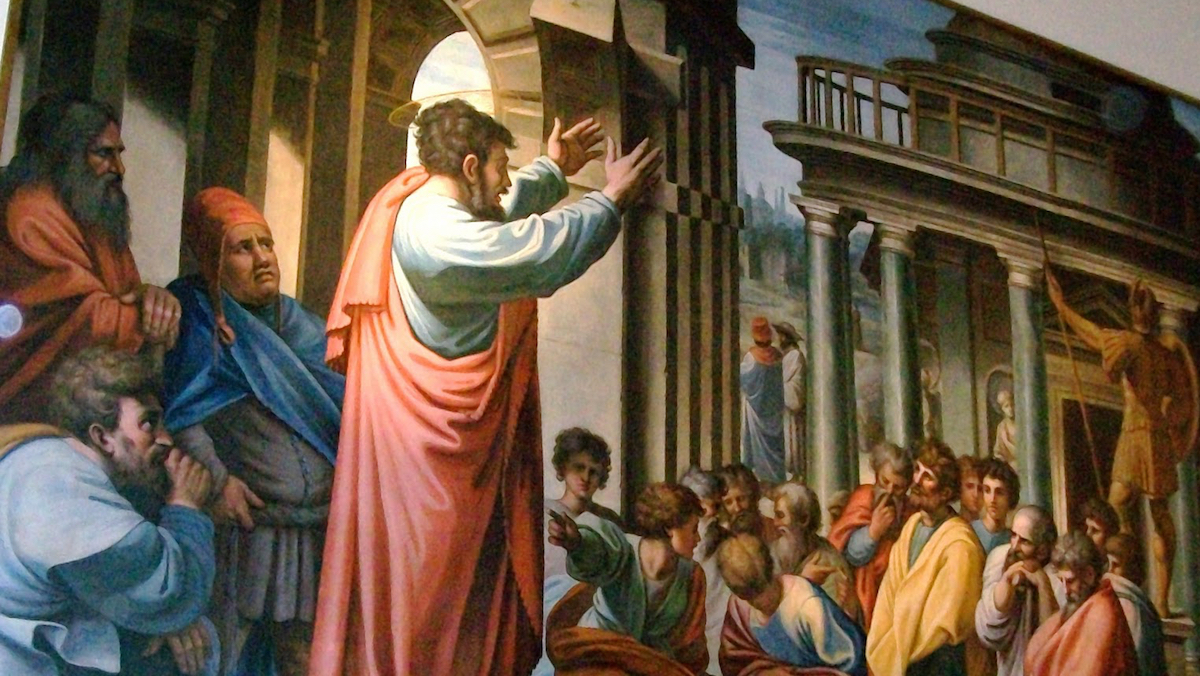A teenage boy named David grew up on a farm during the Great Depression in the 1930s, and he had a big, black Scottish shepherd whom he named Teddy. Teddy was totally devoted to David, and would do anything for his master; he ran to greet him each time he came home from school, slept beside him, and was his constant companion out in the fields. At night, no one was able to get within half-a-mile of the farmhouse without Teddy barking and growling a warning. Then, when the U.S. military base at Pearl Harbor in Hawaii was attacked by the Japanese, plunging the United States into World War II, David enlisted in the Navy. His parents were sad to see him go, but they understood why it was necessary; however, David had no way of explaining to his beloved dog why he was going away for a long time.
After more than a year, David was granted leave, and this is how he remembered the event many years later: “Coming home that first time from the Navy was something I can scarcely describe. The last bus stop was fourteen miles from the farm. I got off there that night about eleven o’clock and walked the rest of the way home. It was two or three in the morning before I was within a half-mile of the house. It was pitch dark, but I knew every step of the way. Suddenly Teddy heard me and began his warning bark. Then I whistled only once. The barking stopped. There was a yelp of recognition, and I knew that a big black form was hurtling toward me in the darkness. Almost immediately he was there in my arms. . . . What comes home to me now is the eloquence with which that unforgettable memory speaks to me of my God. If my dog, without any explanation, would love me and take me back after all that time, wouldn’t my God?” (Stories from a Soldier’s Heart, p. 197). David’s experience illustrates and confirms one of the most important teachings of Jesus: when we wander away from God through sin, our heavenly Father will always welcome us back and eagerly embrace us in His love. The only limit to His mercy, understanding, and acceptance is our hesitation to ask—and so, if we but have the courage to seek Him, there is nothing to fear.
God delights in giving second chances. When the people sinned against the Lord in making and worshipping a golden calf (Exodus 32:7-11, 13-14), they gravely offended Divine Justice, and deserved to be destroyed—but God allowed Moses to intercede on their behalf and to obtain mercy for them. The Lord was very strict with the Jewish people, giving them a Law that was impossible to live up to; God did this not out of anger, but because He wanted it to become unmistakably clear that humanity would never be able to save itself by its own efforts. Then, at the appointed time and as an expression of His immeasurable love, God sent His only Son to be our Savior. St. Paul (1 Timothy 1:12-17) insists that “Christ Jesus came into the world to save sinners,” and Paul identifies himself as a foremost example. Through the mercy of God, Paul was converted from a persecutor of the early Church into its greatest missionary, and in his writings, Paul uses himself as a demonstration of how God offers the chance of a new life to even the worst of sinners. As Jesus says (Luke 15:1-32), there is more joy in Heaven over one repentant sinner than over ninety-nine righteous people, and Our Lord’s parable about the prodigal son reminds us that God is not only willing to forgive us when we repent of our sins, but eager to do so.
There is a lot of misery and despair in our world, and much of this suffering—not all, but much of it—is self-created. Many people experience shame, regret, and spiritual agony because of the sinful or selfish choices they’ve made; they face the very real prospect of a ruined or miserable life because of what they’ve done to themselves and others. There’s a reason the Church refers to the seven deadly sins of pride, anger, greed, lust, and the rest: these things can kill our chance for happiness and peace in life. Sometimes the pain is especially bad because people have never heard the Gospel, or seen it in action, or can’t bring themselves to believe in a loving God willing to forgive sinners like them. You and I are called to respond to this situation whenever we encounter it. If we ourselves are the sinners, it’s absolutely essential that we take Christ’s words in the Gospel at face value, believing that His promise of mercy includes us, no matter how horribly or frequently we’ve sinned.
We’ve heard this Gospel story and message of mercy many times, however, so it’s much more likely that we know, or will encounter, someone else in need of this reassurance. There are hurting people all around us—in our schools and sports programs, our office buildings and factories, our stores and shopping malls, our homes and neighborhoods; there are persons who are hurting from or even crippled by fear and guilt and shame. When we encounter them, we are not supposed to be like the judgmental older brother in Our Lord’s parable; rather, we are called to be like the loving and forgiving father, and to help these persons imitate the trusting and repentant younger son. We can pray with people who’ve lost heart; we can accept them without condemning them, listening to their stories and fears and regrets; we can invite them to trust in God’s love, accompany them to church, and encourage them to receive God’s mercy in the Sacrament of Reconciliation. There are so many potentially ruined lives that can be rebuilt and restored, if only someone is willing to walk with a suffering person on part of his or her journey, redirecting him or her to the Church and the experience of divine forgiveness—and it’s certainly true that Heaven rejoices each time this happens.
Most of us have had the experience of a dog’s unconditional love; these wonderful creatures don’t need explanations or apologies, criticize us for our failures, or hold grudges. As David’s story shows, a dog is always ready to welcome us back—and if this is true of a mere creature, it’s infinitely more so with the Creator. The only limitations to God’s love are the ones we place on Him—and if we’re humble enough to admit our need for His mercy, and if we use our opportunities to help other people do this, too, the joys and blessings of Heaven will be forever ours.








